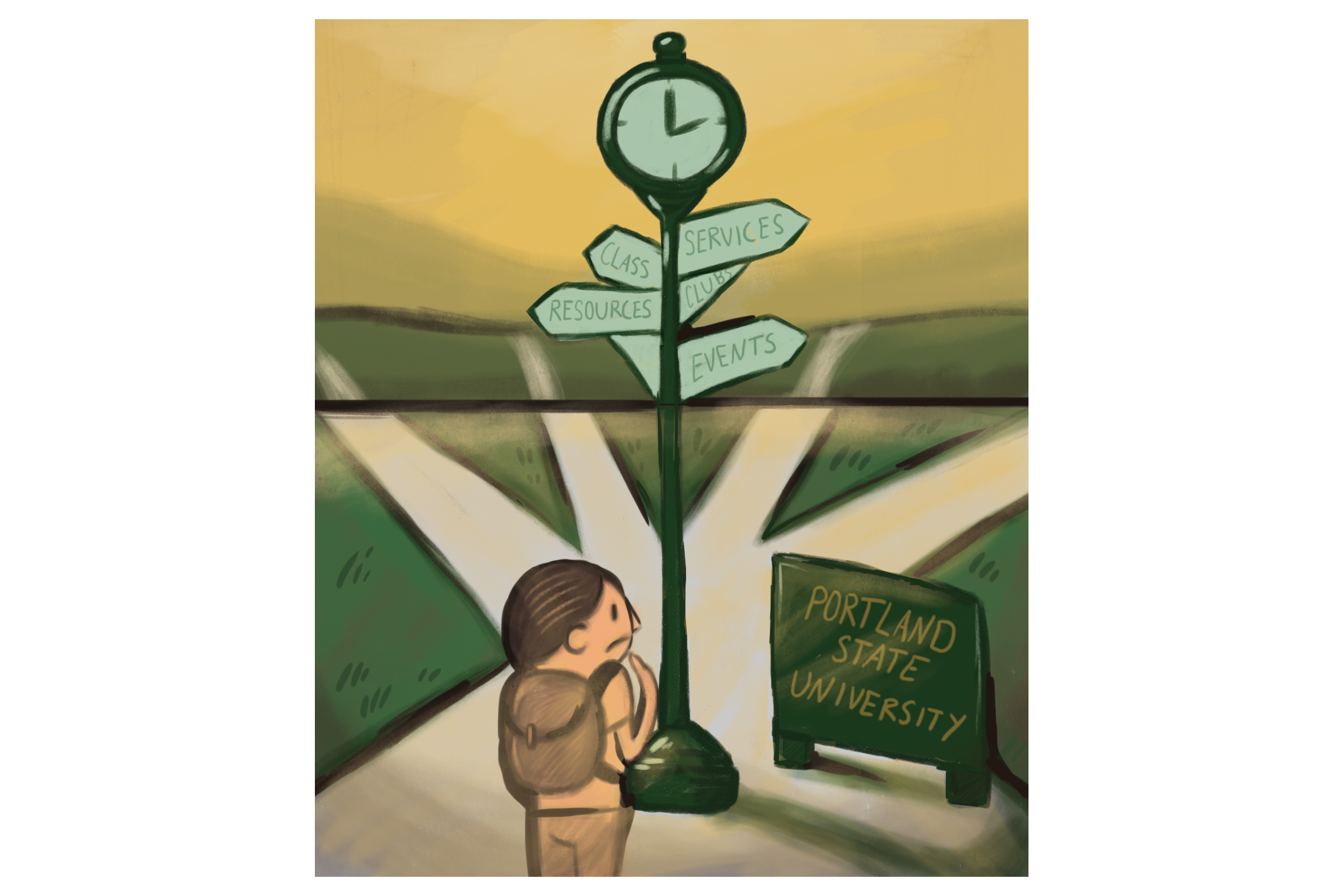Every day we wake up, get dressed and go about our business—each and every one of us. We are not that different.
Students attending college are surrounded by other people going through similar experiences, learning how to navigate this phase of our lives called adult education. A campus in the center of a metropolitan city like Portland is additionally enveloped by an active cultural community. However, many Portland State students struggle with making social connections when they leave home to begin their college journey.
Why can it be so difficult to find real community on a campus and in a city filled with people—many of whom share similar attitudes about the world? How can it feel so hard?
Embarking on a new adventure can be both exciting and terrifying, and starting school is no exception. It can also be incredibly lonely. Moving to a new place where you don’t know anybody, traversing new systems with increased expectations and deadlines, shouldering the pressures of work and personal commitments, all while trying to figure out your own view of the world can make it feel impossible to establish roots and find support.
I went off to college at the University of Oregon straight out of high school, mostly because I wanted something more for my future than my parents had. Sure, I probably could have used a year to figure out my path, but dropping out after six months had more to do with living off campus and my lack of support and connections than any other factors.
It took me another twenty years to pay off those initial loans and find the impetus to return to school. I was determined that this time would be different and worked to find the alliances that would support my success as a student.
It is especially difficult to establish that support at a university where a majority of students live off campus. Access to a community that understands this could prevent other students from the same stops and starts in their educational journey that I had. Residence halls often hang fliers and announce ways to get involved, but it isn’t quite as easy for those of us who only come to PSU when we attend classes.
There are abundant avenues on campus for students to seek allies in whatever way we need, and it can sometimes be useful to have a little help finding them.
A perfect place to begin your search is on Org Sync, a portal for connecting communities online, where you can search student groups to get involved with and learn about other activities and happenings, such as student government openings and Student Operated Services events.
If you want to start your own student group, you can contact the Student Activities and Leadership Program, which advises student-run organizations and can also be found on OrgSync.
Let’s not forget the potential camaraderie to be found at our various resource centers. The tremendous diversity of opportunities for creating networks at these centers include cultural affiliation, sexual orientation, physical ability, women’s resources, veteran status and more. It only takes a few minutes to dig around on the PSU website to find fellow advocates for what is important to you.
Last but not least, take a look at public postings around campus. There are boards of fliers announcing gatherings and events that are posted by students and groups. You can see these all over the place, such as in the library next to the main floor bathrooms and along the wall of the first floor of Neuberger Hall by the administrative windows.
It can be intimidating to get started, but taking that first step can create a system of support that will carry you through your education and beyond.






